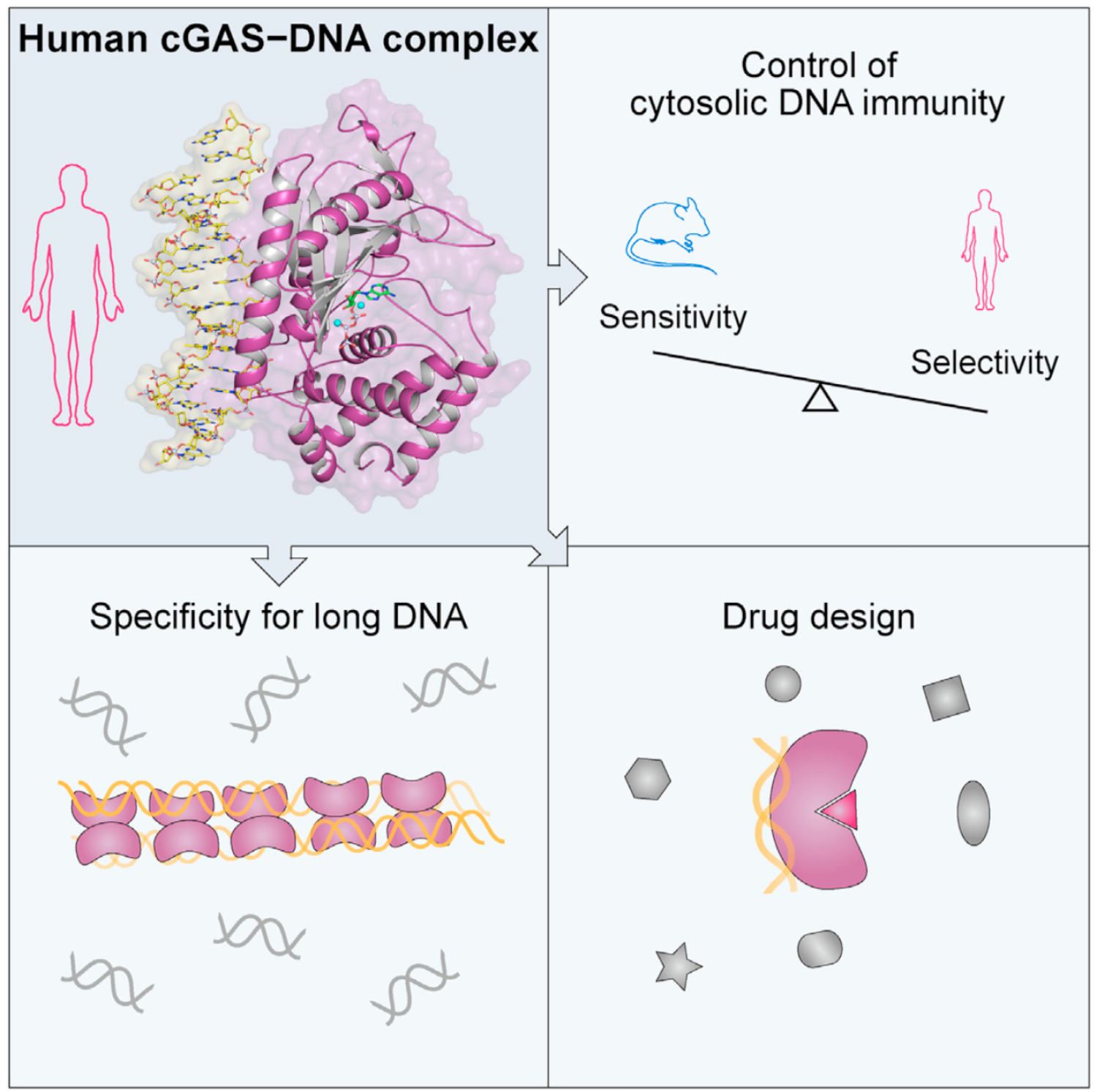Structure of the Human cGAS-DNA Complex Reveals Enhanced Control of Immune Surveillance

*These authors contributed equally to this work
Cell. 2018 Jul 12;174(2):300-311.e11. doi: 10.1016/j.cell.2018.06.026.
Abstract
Cyclic GMP-AMP synthase (cGAS) recognition of cytosolic DNA is critical for immune responses to pathogen replication, cellular stress, and cancer. Existing structures of the mouse cGAS-DNA complex provide a model for enzyme activation but do not explain why human cGAS exhibits severely reduced levels of cyclic GMP-AMP (cGAMP) synthesis compared to other mammals. Here, we discover that enhanced DNA-length specificity restrains human cGAS activation. Using reconstitution of cGAMP signaling in bacteria, we mapped the determinant of human cGAS regulation to two amino acid substitutions in the DNA-binding surface. Human-specific substitutions are necessary and sufficient to direct preferential detection of long DNA. Crystal structures reveal why removal of human substitutions relaxes DNA-length specificity and explain how human-specific DNA interactions favor cGAS oligomerization. These results define how DNA-sensing in humans adapted for enhanced specificity and provide a model of the active human cGAS-DNA complex to enable structure-guided design of cGAS therapeutics.
Comment in
- Human cGAS Has a Slightly Different Taste for dsDNA. [Immunity. 2018]
Links
- PMID:30007416
- PMCID:PMC6084792
- DOI:10.1016/j.cell.2018.06.026
- Free PMC Article

